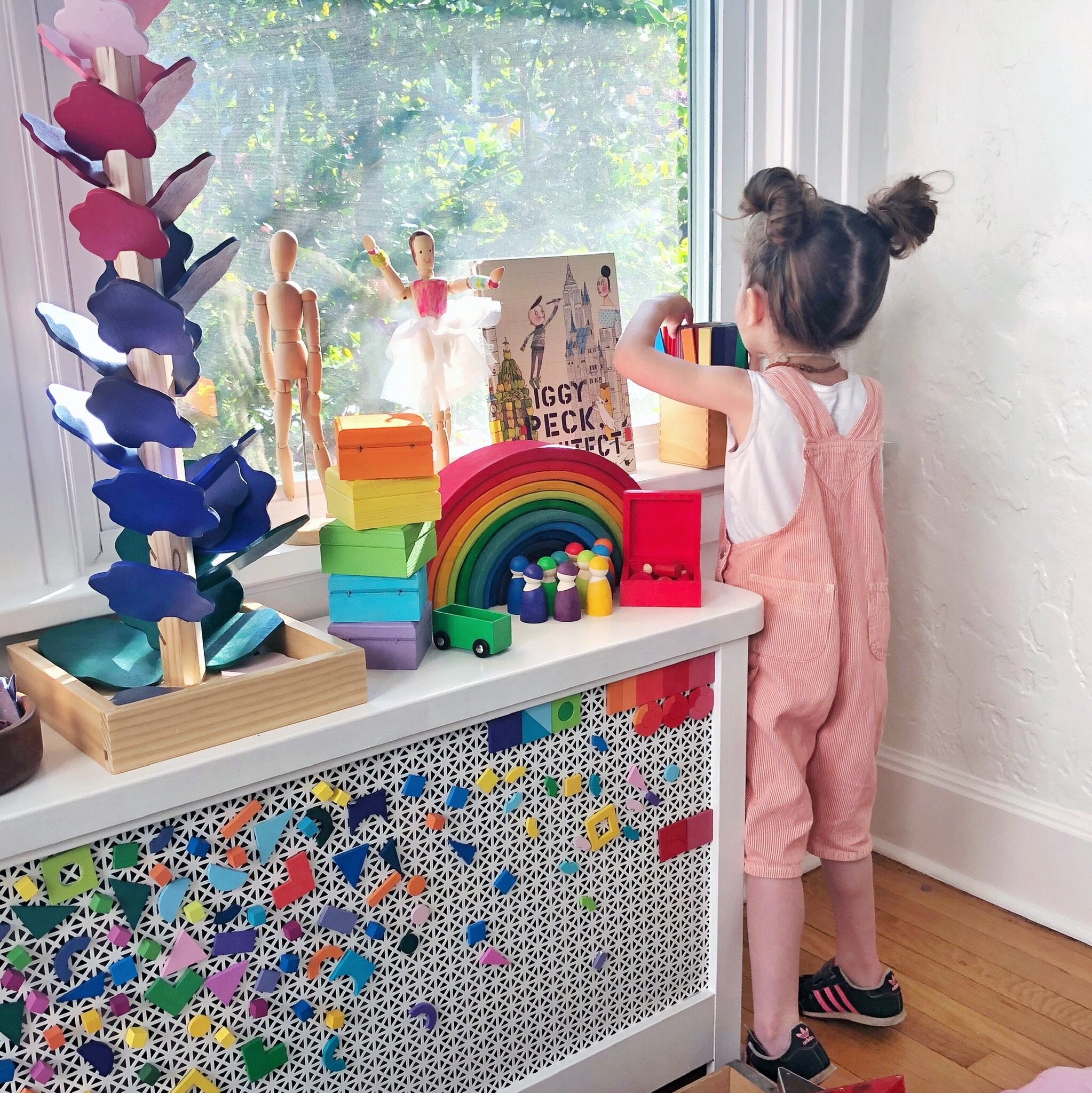5 ways play helps children develop a strong sense of self
/Free play is a crucial aspect of childhood that significantly contributes to a child's development of a strong sense of self. Plus, it’s free! And pretty low-lift for us busy parents.
Below are five ways through which open-ended play facilitates this developmental process:
1. Encourages Self-Expression:
• How it Works: Open play provides children with the opportunity to express their thoughts, feelings, and ideas without restrictions. Whether through pretending, drawing, building, or storytelling, children can freely communicate their perspectives and emotions.
• Impact: Through self-expression, children learn to understand and recognize their feelings, preferences, and interests, which are fundamental components of self-identity. So go ahead, and let them play!
2. Fosters Independence:
• How it Works: When engaged in play, children often take the lead in deciding what and how to play. They make choices, solve problems, and navigate challenges autonomously.
• Impact: Independence in play cultivates self-reliance and confidence. Children learn to trust their abilities and judgments, which empowers them to face new situations with assurance. So go ahead, and let them play!
3. Promotes Self-Regulation:
• How it Works: During play, children encounter situations where they need to control their emotions, behaviors, and impulses, such as taking turns, sharing, or handling frustration.
• Impact: Learning to self-regulate is vital for emotional stability and social competence. It helps children manage stress, build resilience, and engage positively with others. So go ahead, and let them play!
4. Facilitates Self-Discovery:
• How it Works: Engaging in various forms of play allows children to explore different roles, activities, and interests. They discover what they enjoy, what they are good at, and what challenges them.
• Impact: Knowledge about their skills, talents, and preferences enables children to develop a clearer and more positive self-concept. So go ahead, and let them play!
5. Cultivates Self-Esteem:
• How it Works: Successfully navigating play scenarios, whether it’s completing a puzzle, creating a piece of art, or engaging effectively with peers, generates a sense of accomplishment and worth.
• Impact: Positive experiences in play build self-esteem. Children who feel competent and valued are more likely to approach life with optimism and confidence. So go ahead, and let them play!
Play is an invaluable developmental tool that significantly shapes a child’s sense of self. Providing ample opportunities for unstructured playtime allows children to explore, express, and understand themselves better, laying the foundation for a strong, positive self-identity in the years to come. If you want to help your child develop a strong sense of self, go ahead and let them play.







Rescuing them from discomfort also robs them of resilience.